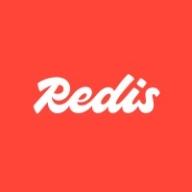

ScyllaDB and Redis compete in the high-performance NoSQL database category. ScyllaDB has the upper hand in scalability and performance optimization, whereas Redis excels in speed and versatility.
Features: ScyllaDB handles extremely high loads with low latency, making it ideal for large-scale applications. It offers efficiency and partitioning capabilities for distributed systems. Redis supports diverse data structures such as strings and hashes, allowing in-memory data caching and persistent storage. It also offers robust replication and clustering for high availability.
Room for Improvement: ScyllaDB could enhance usability and offer better initial configuration guidance to help new users avoid common pitfalls. Improving documentation and providing more user-friendly tools for monitoring could enhance its appeal. Redis could benefit from more user-friendly scaling tools and improved multi-thread capabilities. Expanding support for complex data queries and providing more intuitive data visualization tools could add to its versatility.
Ease of Deployment and Customer Service: ScyllaDB supports straightforward deployment with self-directed utilities and offers dedicated enterprise support. Redis provides various deployment options, including managed cloud services, ensuring ease of access. Its comprehensive documentation aids smoother implementation, while ScyllaDB ensures operational simplicity through its intuitive interface.
Pricing and ROI: ScyllaDB is cost-effective for long-term scalability, offering excellent ROI due to efficient resource usage. Redis may have higher upfront costs but provides high ROI through rapid performance and flexibility in diverse applications. ScyllaDB's value comes from operational cost savings, while Redis justifies its cost with speed and adaptable features.
| Product | Market Share (%) |
|---|---|
| ScyllaDB | 7.8% |
| Redis | 9.1% |
| Other | 83.1% |

| Company Size | Count |
|---|---|
| Small Business | 11 |
| Midsize Enterprise | 3 |
| Large Enterprise | 9 |
| Company Size | Count |
|---|---|
| Small Business | 3 |
| Midsize Enterprise | 2 |
| Large Enterprise | 8 |
Redis offers high-speed, in-memory storage, renowned for real-time performance. It supports quick data retrieval and is used commonly in applications like analytics and gaming.
Renowned for real-time performance, Redis delivers high-speed in-memory storage, making it a favorite for applications needing quick data retrieval. Its diverse data structures and caching capabilities support a broad array of use cases, including analytics and gaming. Redis ensures robust scalability with master-slave replication and clustering, while its publish/subscribe pattern renders it reliable for event-driven applications. The solution integrates smoothly with existing systems, minimizing performance tuning needs. Although documentation on scalability and security could be improved, Redis remains cost-effective and stable, commonly utilized in cloud environments. Enhancing integration with cloud services like AWS and Google Cloud and refining GUI may improve usability.
What are the key features of Redis?Redis finds application across industries for tasks like caching to improve application performance and speed, minimizing database load. It enables real-time processing for session storage, push notifications, and analytics. As a messaging platform, Redis handles high traffic and supports replication and clustering for cross-platform scalability.
ScyllaDB is an open-source, distributed NoSQL wide-column datastore (a highly scalable NoSQL database), known for its compatibility with Apache Cassandra, and for supporting the same protocols as Cassandra (CQL and Thrift) and the same file formats (SSTable). ScyllaDB is designed for high throughput and low latency, making it suitable for data-intensive applications. Its architecture allows it to deliver remarkable performance on a massive scale, utilizing modern multi-core servers to their fullest potential
ScyllaDB utilizes a similar architecture, data format, and query language as Apache Cassandra, providing compatibility while dramatically improving speed and scalability.
The key advantages of ScyllaDB include its rewritten C++ implementation that eliminates Cassandra's expensive Java garbage collection pauses, built-in caching for fast access to frequently used data, and shard-aware drivers for direct routing of requests. This enables it to fully leverage modern multi-core servers for massive parallelism. The community is active and the latest major release, ScyllaDB Enterprise 2023.1.0 LTS, incorporates over 5,000 code commits focused on enhancing capabilities.
ScyllaDB supports wide-column data modeling for fast read performance at scale. It includes integrated monitoring and management tools to track database health and performance. For organizations looking to boost speed and reduce costs for NoSQL workloads, ScyllaDB offers a drop-in replacement for Cassandra that delivers lower latency, higher throughput, and increased scalability with fewer nodes. Its seamless migration path makes switching from Cassandra seamless, requiring minimal code changes.
We monitor all NoSQL Databases reviews to prevent fraudulent reviews and keep review quality high. We do not post reviews by company employees or direct competitors. We validate each review for authenticity via cross-reference with LinkedIn, and personal follow-up with the reviewer when necessary.